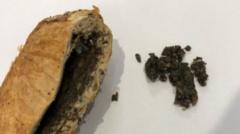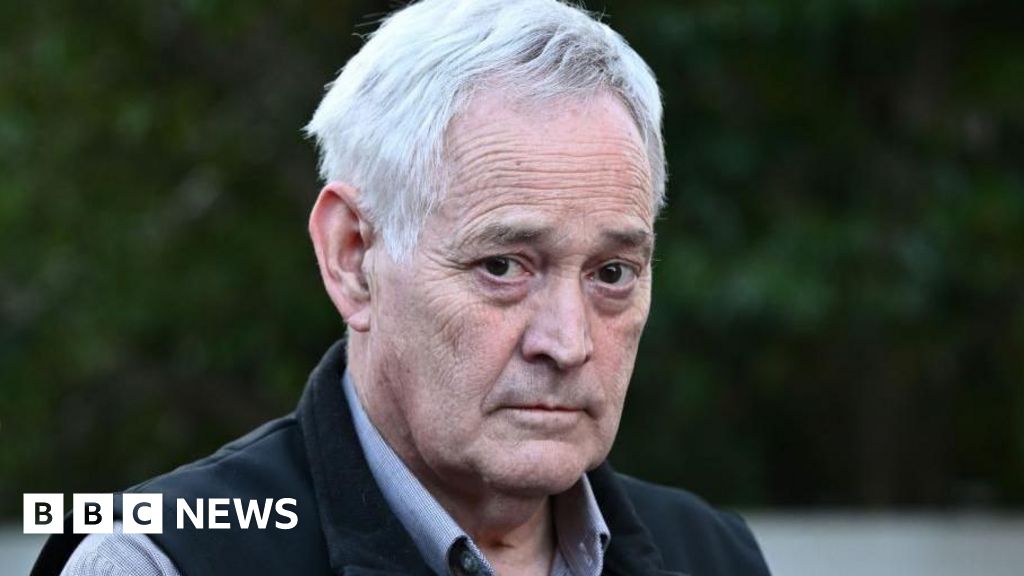In a shocking turn of events, the Supreme Court of Victoria has unveiled over 100 images linked to the high-profile murder trial of Erin Patterson, 50, who has been found guilty of murdering three relatives through a lethal family meal consisting of beef Wellington tainted with toxic mushrooms. The incident, which occurred on July 29, 2023, in the Victorian town of Morwell, has captivated the nation as it revealed a chilling narrative of deception and tragedy.
Patterson was convicted by a jury for the deaths of her former in-laws, Don and Gail Patterson, both aged 70, and Gail's sister, Heather Wilkinson, 66, after they consumed the toxic meal. A fourth individual, local pastor Ian Wilkinson, Heather's husband, narrowly survived the experience, requiring weeks of hospital treatment. In a twist of fate, Patterson's estranged partner, Simon Patterson, opted out of the dinner, expressing unease amidst lingering marital tensions.
Following the jury's decision, the court released images documenting critical evidence examined during the trial. Among these were photos of the leftover beef Wellington, retrieved from Patterson's residence, stored in specimen bags for forensic analysis. These leftovers were subsequently tested for death cap mushrooms, regarded as one of the most lethal mushrooms known to humankind.
Countering her claims that she obtained some dried mushrooms from an Asian grocery in Melbourne, Patterson could not specify the location or provide evidence to support her purchase. Investigators, however, unearthed her extensive browsing history related to death cap mushrooms, alongside mobile phone data indicating visits to locations where the fungi were reported prior to the ill-fated meal.
Forensic evaluations highlighted alarming findings - traces of the dangerous mushrooms were discovered in a food dehydrator that Patterson discarded shortly after the meal. Despite her insistence of never owning such an appliance, investigators located both the device and a manual in her kitchen. CCTV footage captured Patterson illegally disposing of the dehydrator, which was later examined and found to contain her fingerprints and mushroom traces.
The heinous nature of this case continues to unfold, drawing considerable attention both in Australia and worldwide as the repercussions of this toxic family meal echo through the legal system and beyond. The implications of the "mushroom murders" stand as a stark reminder of the need for awareness regarding the dangers of foraging and consuming wild mushrooms.
Patterson was convicted by a jury for the deaths of her former in-laws, Don and Gail Patterson, both aged 70, and Gail's sister, Heather Wilkinson, 66, after they consumed the toxic meal. A fourth individual, local pastor Ian Wilkinson, Heather's husband, narrowly survived the experience, requiring weeks of hospital treatment. In a twist of fate, Patterson's estranged partner, Simon Patterson, opted out of the dinner, expressing unease amidst lingering marital tensions.
Following the jury's decision, the court released images documenting critical evidence examined during the trial. Among these were photos of the leftover beef Wellington, retrieved from Patterson's residence, stored in specimen bags for forensic analysis. These leftovers were subsequently tested for death cap mushrooms, regarded as one of the most lethal mushrooms known to humankind.
Countering her claims that she obtained some dried mushrooms from an Asian grocery in Melbourne, Patterson could not specify the location or provide evidence to support her purchase. Investigators, however, unearthed her extensive browsing history related to death cap mushrooms, alongside mobile phone data indicating visits to locations where the fungi were reported prior to the ill-fated meal.
Forensic evaluations highlighted alarming findings - traces of the dangerous mushrooms were discovered in a food dehydrator that Patterson discarded shortly after the meal. Despite her insistence of never owning such an appliance, investigators located both the device and a manual in her kitchen. CCTV footage captured Patterson illegally disposing of the dehydrator, which was later examined and found to contain her fingerprints and mushroom traces.
The heinous nature of this case continues to unfold, drawing considerable attention both in Australia and worldwide as the repercussions of this toxic family meal echo through the legal system and beyond. The implications of the "mushroom murders" stand as a stark reminder of the need for awareness regarding the dangers of foraging and consuming wild mushrooms.



















